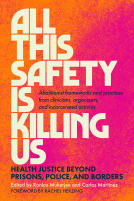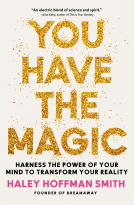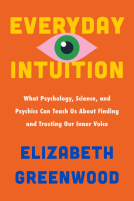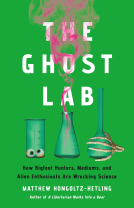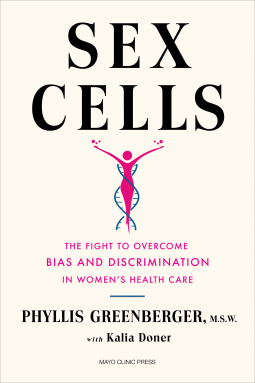
Sex Cells
The Fight to Overcome Bias and Discrimination in Women’s Healthcare
by Phyllis E. Greenberger; Kalia Doner
This title was previously available on NetGalley and is now archived.
Send NetGalley books directly to your Kindle or Kindle app
1
To read on a Kindle or Kindle app, please add kindle@netgalley.com as an approved email address to receive files in your Amazon account. Click here for step-by-step instructions.
2
Also find your Kindle email address within your Amazon account, and enter it here.
Pub Date Apr 02 2024 | Archive Date Dec 18 2023
Talking about this book? Use #SexCells #NetGalley. More hashtag tips!
Description
Sex Cells is a clear-eyed report on the still-pitched battle to get the scientific and medical world to recognize that women are not small men.
The idea that our biological sex impacts our health seems like such a simple concept. Unfortunately, it has proven to be anything but that. Phyllis Greenberger’s battle cry has been: Women/females need to be treated equitably in relationship to men/males. They are equal, but they are not the same.
It has been challenging to get individual researchers and practitioners to accept this, as well as research and medical institutions, and manufacturers of medications and devices. The journey towards equal treatment and the understanding of sex and gender differences in prevention, diagnosis and treatment is still unfolding. This book is the story of that journey—why it was, and still is, so important to do research specific to women/females.
Sex Cells gives readers access to the wide world of sex-specific medical issues as they play out in research labs and doctor’s offices, and how women pay the price, with a close look at the impact on minority populations.
The story is told by Phyllis Greenberger—the woman who is recognized as the driving force for change over the past 25 years—and her allies in government, NGOs, academia, medical research, the US government, and public health advocacy. The array of experts who have contributed to the book offer an insiders’ up-close view of the battle to have female cells, lab animals and humans brought into medical research, so that women can receive treatment that is appropriate and effective for a wide range of conditions.
Told with humor, ferocity and passion, Sex Cells is a manifesto that will appeal to anyone interested in health, women’s rights, and public health policy.
Advance Praise
“Equitable health, health research, and health care for women – it’s everyone’s job! This elegant volume presents the reader with both challenges and opportunities.”—Nanette K. Wenger, MD, Professor of Medicine Emeritus, Emory University School of Medicine
"Advocating for research and resources to help patients make informed health decisions is something that Phyllis has been doing for decades. This volume exquisitely presents research data in an accessible manner to help patients appreciate what we know, and what research is still left to accomplish, in our quest for health equity. Phyllis’s book is a must read for patients, advocates, researchers, and clinicians, alike."—Sabra L. Klein, Ph.D., Professor of Molecular Microbiology and Immunology and Medicine at the Johns Hopkins Bloomberg School of Public Health and the Johns Hopkins School of Medicine
"Phyllis does a masterful job of not only educating us about what we know about sex differences, but also showing us what we still don't know. She gives us the roadmap on how to advance research and provides much needed information to the public on the importance of understanding sex differences."—John Whyte, M.D., MPH, CHief Medical Officer, WebMD
"A powerful book by a powerful woman. Phyllis Greenberger was a trailblazer and stills works tirelessly to bring about health equity for Women. A must read for all to know where we have been and where we need to go to achieve equitable healthcare for all."—Nieca Goldberg, M.D., Clinical Associate Professor of medicine at NYU Grossman School of Medicine, author of Women are not Small Men and host of the Beyond the Heart podcast
"It is my hope that this book will inspire you to become an advocate for women’s health in your own life, in your interaction with your healthcare providers, in your community, and on a national level by letting your representatives know how much you care about this issue. The Society for Women’s Health under the leadership of Phyllis Greenberger led the charge starting in the 1990s that brought the issue of sex differences to the attention of many of us in government. Since then great strides have been made, but there is much to be done, and the progress we have made is now being threatened by those who want to take control of women’s health out of women’s hands. Read this book, talk about this book, and keep fighting for the healthcare that women deserve, need, and demand."–Marsha Henderson, former Associate Commissioner for Women’s Health at the Food and Drug Administration
Available Editions
| EDITION | Other Format |
| ISBN | 9798887700205 |
| PRICE | $26.99 (USD) |
| PAGES | 272 |
Available on NetGalley
Featured Reviews
 Reviewer 263682
Reviewer 263682
***Thank you to the publisher and NetGalley for the opportunity to read and review. When I saw this ARC, I knew I HAD to read it.***
This book NEEDS to be in the hands of everyone that practices medicine. I truly believe the only folks getting qualified care in this country are well-insured white males. Anyone else - good luck.
This book is more of a technical read but a necessary and eye-opening one. We’ve let this go on too long, y’all. We’ve let the status quo stay the same for too long.
No. More.
Be loud about your symptoms. If a doctor doesn’t listen, go to another one. You have EVERY RIGHT!!
For context, my story -
I spent years being brushed off by doctors. I’ve experienced back and neck pain since I was about 15 years old. Everything from a full ache to sharp, burning, radiating pains that struck out to my arms and legs.
I saw multiple doctors and heard numerous times, with a laugh, “you’re too young for this kind of pain!” (Why do think I’m here???) And others along the lines of “have you tried losing weight” (to a perfectly average size 16 year old) and “you should crunches and strengthen your core!”
At one point, I was even sent to physical therapy where the staff treated me for 4 weeks and said, “there’s not much else we can do for you.”
The years went on and I gave up trying to get any real answers. Instead, a friend talked me into see a chiropractor at the age of 39. So, I went to the one closest to my house. It wasn’t bad by any means but it also didn’t feel personalized at all. This facility literally just lined everyone up for their E-Stim therapy in the same room…in recliners. Considering my lower back was on of the problems it was always difficult for them to put the stim gel pads on me in a sitting position. And it wasn’t comfortable to sit there. Eventually, I took my X-rays and went somewhere else.
Cue me turning 40 this year and, after a little tumble down a few stairs, my chiropractor takes some X-rays of my neck including a few new views she didn’t have before in order to make sure it’s safe to treat me and makes a discovery.
I have spinal stenosis and several bone spurs pressing against my spinal nerve. To the point that I may be looking at surgery within the next year. (When I first started seeing this doctor, she asked if I had been in a major car wreck. I have not.)
TWENTY-FIVE years is how long it took for someone to do the right X-rays. That’s all it took.
As of this point, with my medical history, I refuse to be treated by male doctors because they have such a historical record of brushing women off. Women doctors are not immune, but I do think they are better.
This book makes me sad. And angry. And if I, an insured white woman have been brushed off so much - imagine other marginalized communities? It’s abhorrent to think that we’re living in 2023 and this is how it is. It cannot continue.
 Reviewer 1151510
Reviewer 1151510
This was an informative, but dense read. It was also majorly depressing, if I'm honest. It only reinforced what I already experience as a woman when I try to get healthcare. The book isn't overly long--only 250 pages--but it's both packed with information and also not as detailed as I was expecting. It's essentially an overview of issues found in women's healthcare. I appreciated the inclusion of the issues facing people of different races and ethnicities and also including trans and non-binary folk, but I do wish there were a bit more, especially in regards to transpeople.
In terms of the writing, it was a bit mixed. There were moments where it was very personable and others where it was bogged down by the repeated mentions of the accolades and titles of the various persons and institutions cited in the book. It made the reading experience drag a bit, especially when persons or institutions mentioned in the text previously were mentioned again later in the book with the same long string of titles and accolades before actually getting to the point what was trying to be said. I feel like some of this could've been solved by adding footnotes to clean up some of the extra text while still giving the cited persons their dues.
Overall, though, it was a decent read, I just wish it were a bit more comprehensive and that each section carried equal weight.
I enjoyed this book although its writing seems more akin to an academic paper than what I thought I would be reading. That said, it is FULL of interesting statistics and information regarding the differences in healthcare (diagnosis, treatment, prevention) for biological women vs men - and interestingly, although it is known that there are differences between males and females, the biological sex-based care has been slow to form (if at all).
I found it interesting that females were (and still are) often not included in clinical studies - that the results of clinical studies conducted on men are just arbitrarily applied to women even though there are obvious known differences in our biological make up. Furthermore, if a clinical study includes women, more often than not, all woman are lumped together when there are known differences in various races and social determinants of health for females! The author goes on to explain how properly breaking this down in the research and analysis will lead to stronger health outcomes for all women.
I appreciated the authors commentary on how biological differences between males and females (and even among females with varying socioeconomic backgrounds) - like hormones, metabolism, extra body fat, digestive differences (less gastric acid present in females vs men) affect absorption of medications and the success rate of treatment/prognosis. And although this data has been known/proven, the biological sex of the patient is often not accounted for when prescribing or treating a myriad of conditions. I also wasn’t aware that women are more likely to have addiction issues due to their lower rate of metabolism! It stands to reason that the metabolic differences in drug absorption should play a significant role in dosage and prescriptions - to which it largely hasn’t yet.
There is a lot of information presented but the author did a great job of breaking it down into shorter chapters. I appreciated how the information was compiled and presented and would recommend this book to healthcare professionals as well as people who enjoy reading science based research papers/non-fiction.
Thank you NetGalley for the electronic version of this book in exchange for an honest review.
Readers who liked this book also liked:
Ronica Mukerjee and Carlos Martinez
Multicultural Interest, Nonfiction (Adult), Politics & Current Affairs





